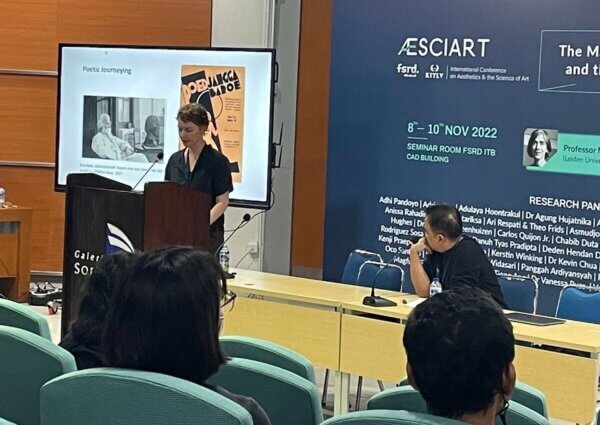
Abstract
In this paper, I will demonstrate how the painter Rusli (1916-2005) translated the concept of the artist as cosmopolitan poet into his drawings and paintings. Rusli’s works combine a modernist singularity of the moment and a poetic economy of lines and color fields that aim to achieve maximum effect with minimum means of production. By connecting Rusli’s work to his biographical data, I trace how his poetic, cosmopolitan outlook is culturally and geopolitically situated within decolonization processes in transregional education and art networks that existed between late colonial Indonesia and India. In this educational context, the ideal of a “union in harmony” that is both cosmopolitan and allows for free self-expression and artistic autonomy is crucial. This paper outlines how these ideals were put into educational and artistic practice by teachers like the Indian modernist painter Nandalal Bose, who directed the art school in Santiniketan, where Rusli studied from 1932-1938. Upon his return to the Dutch East Indies, Rusli joined the Taman Siswa school as a teacher and the artist collective Seniman Indonesia Muda (SIM), arguably introducing his views on art to his new network in Yogyakarta. Through an analysis of critical positions about Rusli’s work in the 1950s, I demonstrate that his oeuvre presents a challenge to monolithic nationalist art historical discourse on modern art from Indonesia and its geographical limitations, not just to gain a better understanding of Rusli’s work, but to extent the global discourse on modern art with a cosmopolitan perspective from the Indonesian context.